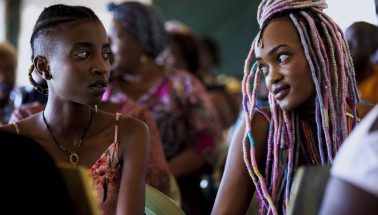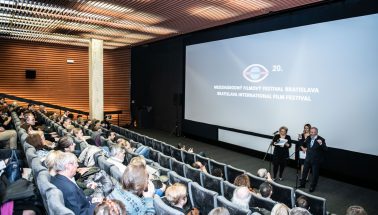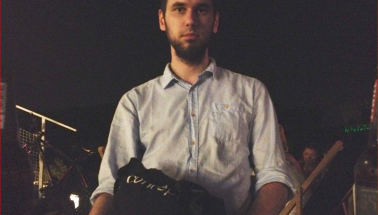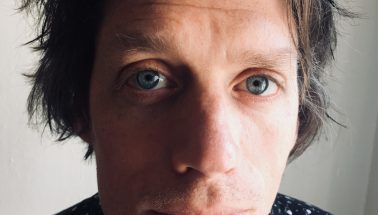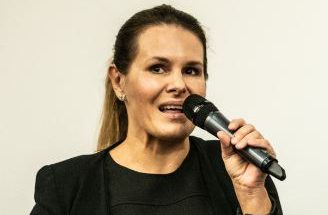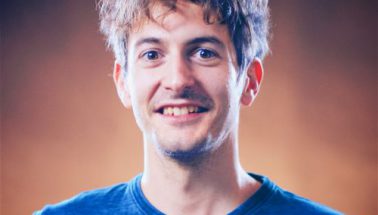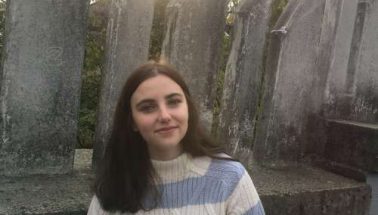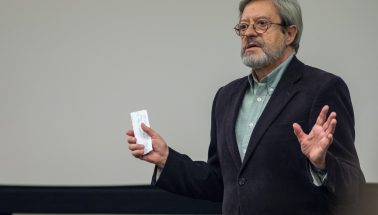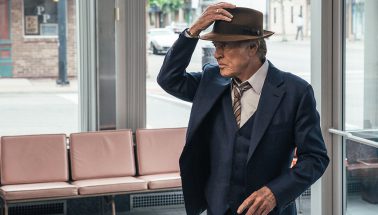“Actors infuse film with emotion and give it a soul”
Daniel Rihák. A fresh graduate of film directing at the Academy of Performing Arts in Bratislava under the leadership of prof. Martin Šulík. A director of (so far) student films and a number of commercials. His graduation film The Trip recently won the Best Director and Best Sound awards at the Áčko Student Film Festival.
Your father, Jaroslav Rihák, is also a multi-genre artist. As a director, he worked in theatre and radio, wrote and writes for television, shot fiction as well as documentary films. He is also active in literature (Story of Steamer Pentcho, 2015) and journalism (for example, he writes for Denník N daily). How did he affect you? Do you ever discuss your films with him?
Ever since childhood my father has been a great inspiration. I’ve always been impressed with his enthusiasm when talking about his projects and with what stubbornness he faces the many challenges in their realization. I am grateful I got to see how films are made already as a child, as well as for the artistic and inspirational environment I grew up in. I hope one day I can pay him back somehow.
And we, the audience, can look forward to a joint work of the Rihák directors J. Anyway, it is somewhat unusual that you cast professional actors for your student films (The Tie – Danica Jurčová and Róbert Jakab, your current festival film The Trip – Gabriela Marcinková and Marian Mitaš), rather than non-actors or drama students. Why?
I love actors. I admire them and constantly realize it is them who infuses the film with emotion and gives it a soul. In my opinion, acting talent is not a random, extrovert character feature. It is a focused and courageous work with one’s own soul, memories and imagination, and the result of a constant observation of human communication. Often actors’ remarks will stun the director or producer with their accuracy. The director must always be present in the moment, be there with them, inspire them, and give space and support. If that happens, there almost always comes something that goes beyond the original script or the director’s concept. These are magical moments!
The visitors of the Bratislava IFF 2018 can see The Trip in the collection of short student films. You shot this psychological thriller based on an eponymous short story by the Slovak writer Jozef Karika. For the last decade, he has been one of the most popular and best-selling domestic authors. He was also noticed by the director Peter Bebjak, who drew inspiration from his book The Crack and created a mysterious thriller, expected to hit the cinemas in January. This is obviously an inspiring writer whose work also attracts filmmakers. Why and what did he fascinate you with?
I have been following his novels for a long time, and I am convinced he is an exceptional talent in Slovak literature. His ability to engage and lead the reader’s attention is brilliant. He is incredibly good at describing situations and at the same time building up a narrative structure that doesn’t get boring even after hundreds of pages. On the contrary – it creates new, surprising expectations. We should be glad to have such a “global” talent who focuses on our local themes.
After completing my bachelor degree film, thriller First Surgery, I was looking for a new subject, and that was when Dado Nagy pointed out Karika’s latest short stories. I got to reading and immediately came across his story The Trip, which instantly triggered my imagination. I wrote to him and after a very pleasant and open communication, I was convinced that this is a good material for a graduation film. Jozef Karika is an ideal partner for any director, ranging from the quality of his work, through the freedom and flexibility he provides for the adaptation of his work to his pleasant, positive personal contact. It was a beautiful experience and I believe we will meet in the future.
Weren’t you tempted to create a longer film? Or were you simply limited by your options (economic, technical, time)?
As I already knew the limits of a school film production, I planned my graduation film exactly like this: short and compact, where in a small space we give our view of modern genre film. For my next film I am definitely tempted by feature-length format. It’s something completely different from a short film, it requires a narrative that keeps the viewer’s attention for two hours of the film experience – just like the works of Jozef Karika. That is why the last years of studies led by prof. Ľudovít Labík I worked with analysing narrative structures and their integration into my work. I feel ready.
You sound determined. I’m already looking forward to seeing your feature debut at the next festival. Actually, how do you perceive film festivals? What do they bring people and why shouldn’t they ignore them?
Although I personally prefer commercial genre films, festivals enable young filmmakers at the beginning of their careers to present their short films and test the reaction of the audience. For the visitors, they bring a chance to discover something new – new voices of aspiring creators, new trends, a new film language.
If you’ve already seen the program of this year’s Bratislava IFF, could you share your tips on which films, besides yours, of course, they should definitely go see?
I must confess I’m not familiar with most of this year’s films or creators, so I’m going to be discovering and experimenting myself. I certainly want to see Putin’s Witnesses, which, I hope, will reveal the circumstances and context of the origin of the authoritarian regime, which again threatens us with its arrogant expansion. I’ll also watch Rafiki, as I am fascinated by Africa and the changes it is currently undergoing. And last but not least, I will definitely go to see At Eternity’s Gate, a new film by Julian Schnabel, the director of my favourite films Basquiat and The Diving Bell and the Butterfly.
Thank you for the interview.
See you in the cinema!
Anna Kačincová Predmerská

